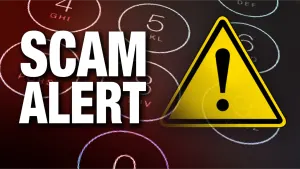More Stories

If you or someone you know is struggling and needs help - below are some resources available in the tri-state:
NATIONAL HOTLINE
988 Suicide and Crisis Lifeline. Available 24/7.
CONNECTICUT
Connecticut’s state website has a number of mental health resources, including resources for coping with the COVID-19 pandemic.
211 of Connecticut offers links with comprehensive, up-to-date information on programs and services that can assist with mental health care.
Warm Lines are telephone support services staffed by people who have experience/expertise with mutual support. These lines are not crisis lines and the days/hours of operation vary.
Addictions.com has more information on suicide prevention and resources.
AddictionResource.net has information on drug and alcohol treatment centers.
Detox also has resources for residents.
GETTING HELP: Suicide prevention websites and hotlines
NEW JERSEY
Suicide prevention: NJ Hope Line - 855-654-6735
NJ Mental Health Cares: 866-202-4357 | Email: help@njmentalhealthcares.org
Veterans Counseling Hotline: 866-838-7654
Youth Helpline of New Jersey - 888-222-2228
Mom 2 Mom: 877-914-6662 | Website
The Division of Mental Health and Addiction Services (DMHAS) serves adults with serious and persistent mental illnesses. Services are available to anyone in the state who feels they need help with a mental health problem.
HERE you can find information on receiving services in the New Jersey public mental health system.
New Jersey 211 offers links with information on programs and services that can assist with mental health care.
HERE find resources for talk lines and warm lines, and what services they provide.
NEW YORK
The New York State Office of Mental Health offers an array of mental health resources, including help for anxiety due to the pandemic, and ways to search for mental health programs.
Need help now? Call 1-800-273-TALK (8255) or text Got5 to 741-741.
Are you a frontline worker? Text FRONTLINENY to 741-741 for specialized support.
CLICK HERE to find a mental health program in New York.
VETERANS
Eligible veterans can get care through the U.S. Department of Veterans Affairs. For more information, go to https://www.mentalhealth.va.gov/ or call 1-877-222-8387.
AFFORDABLE SERVICES
You can find affordable mental health services through the Substance Abuse and Mental Health Services Administration. Visit SAMHSA's treatment locator or call 1-800-662-HELP (4357).
Signs and symptoms:
RWJBarnabas Health says you or a family member should consider seeking care if you notice these sympstoms:
● Unusual mood changes and increased difficulty in controlling emotions;
● Significant changes in sleeping and/or eating (less than usual or more than usual);
● Excessive worry, anxiety, or sadness that lasts for more than a couple of weeks;
● Decreased performance at work for adults or at school for children and youth;
● Noticeable decrease in concentration, problem solving skills and memory;
● Atypical social isolation from friends and family;
● Increased use of alcohol, prescription medication (above physician recommended doses) and\or over the counter medications.
More from News 12
1:50

Mechanics offer tips on how to prevent car corrosion after a snowstorm
2:21

Tracking a few more Long Island snow chances through early next week

Family of officer killed in crash expresses gratitude for ‘overwhelming’ show of ‘Pizza Strong’ support
1:21

'This morning was bad.' Sewer repair backs up drivers in Lido Beach
0:57

Sources: Former President Bill Clinton and Hillary Clinton to testify before House committee on their past ties to Jeffrey Epstein
